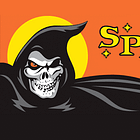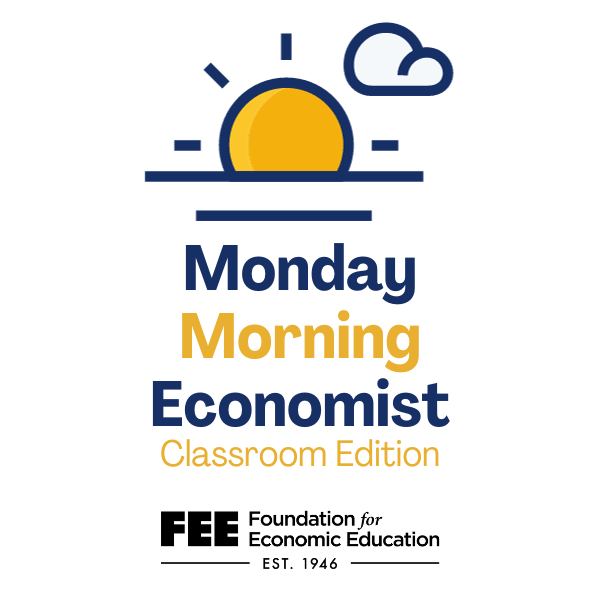Best of Monday Morning Economist in 2023!
It's been another big year thanks to supporters like you!
As we wrap up the end of the year, it’s the perfect time to reflect on the journey we’ve been on together over the past year. The past year has been remarkable, filled with growth and engaging discussions. I’m constantly surprised each week to see how y’all interact with articles and to see all the new supporters who join.
We started the year with a little under 1,200 subscribers. At the time, I was excited because we had doubled the number of subscribers from the previous year. I’m pumped to share that we have (again) doubled our numbers since the start of the year. As I write this, we have a community of just under 3,500 subscribers!
Thank you for being part of this community! This growth is largely thanks to readers like you who have been sharing your favorite posts with friends, family, and students. I'm profoundly grateful for your support and enthusiasm. As we turn the page to the next chapter, let's look back at some of our top posts from this past year, and look into what’s on the horizon.
Top 10 Posts in 2023
There were a lot of memorable stories this year, but some of my favorites were about alternative methods of allocating spots in the college football playoffs and how Twitter’s new business model resembles the market for lemons. It’s really easy to write articles about externalities or incentives, but I love getting to write about concepts I don’t write about often (or ever), like bank runs, panda diplomacy, matching markets, or Baumol’s cost disease.
Those were some of my favorite stories to write about, but here are the top posts based on what y’all are reading and sharing:
Was there a story from this year that resonated with you, but didn’t crack the top 10 list? Let me know in the comments:
Monday Morning Economist in the News
Back in 2022, the only time I got to talk to the press about newsletter topics was when I wrote a popular post about pumpkin spice lattes. This year was very different! I still had a few interviews about why pumpkin spice is so popular, but I also got to weigh in on big macroeconomic issues like the Silicon Valley bank run or the U.S. debt negotiations and what it means for the rest of us.
Based on my very crude tracking, I contributed to 40 different media opportunities across print, radio, and television. A lot of my contributions were for local stations in Roanoke, Richmond, and Washington D.C., but I also contributed to national conversations about why the price for Beyonce tickets are so high and how inflation impacts food banks.
This year, however, I talked to a lot of outlets about the economics of Halloween spending. When I wrote about it for Monday Morning Economist, I focused on the consumer confidence index and how it wasn’t lining up with expected shopping behavior. A lot of different outlets were interested in learning more, including TIME and BBC Radio. I was thrilled they reached out to me for comments.
When I first started doing interviews, I was terrified every time I was asked. It didn’t matter if it was summarizing the latest inflation numbers or talking about coffee. This year, I feel a lot more comfortable being an “economic generalist” that outlets can reach out to for clarification.
It reminded me a lot of how my friend Chris Clarke explains his reason for being on TikTok. We both work at public universities and feel an obligation to give back to the public when we can. I’m very fortunate to have learned how to communicate better because of people like Chris, Dr. Abdullah Al Bahrani, and Craig Palsson @ Market Power. I’ve gotten to watch them do their amazing work on social media, which is far more challenging than talking to a reporter for 3 minutes.
Here’s hoping 2024 includes a lot more opportunities to talk about economics!
What Else Happened This Year?
At the tail end of 2021, I started a podcast with my friend Matthew Rousu. Every other week during the year, we met for a drink and talked about different economic concepts and issues. You can subscribe on Substack Economics Happy Hour or follow us on your preferred podcasting platform (Spotify, Google Podcasts, TuneIn Radio, and Apple Podcasts). We rarely have a hard time coming up with a topic, but we’re still trying to figure out the production side of things.
This Fall, the Foundation for Economic Education (FEE) began creating valuable resources for economics educators who wanted to use Monday Morning Economist in their classrooms. Developing comprehensive resources can be a time-consuming task, but FEE stepped up as the resource experts. Educators, whether in high school or college, can now join our online classroom at no (monetary) cost and receive weekly email updates when new teaching materials become available. Our online classroom also includes lesson plans dating back to September, providing educators across the nation with invaluable resources. This partnership has been truly remarkable, and I'm deeply grateful for the opportunity to put these resources into the hands of teachers nationwide.
So, What’s Next for the Newsletter?
This past year has had a lot of ups and downs for me, and I haven’t devoted enough time to thinking about what’s next. Perhaps crowdsourcing this section would work better? I started this outlet 3 years ago to increase economic literacy around the country and I think we’re doing a good job. I’m not an expert in writing about the latest economic research like Noah Smith or in the latest evolution of causal inference techniques like scott cunningham, but I do believe I’m good at explaining current events and pop culture through the lens of economics.
I may not know what’s next for the newsletter, but I do know that I’ll keep writing Monday Morning Economist each week and sharing interesting links with you every Tuesday. But, this is where you can help! If there is something you think I can do better, please let me know. I would to scale this up so that we reach more people, I just don’t know how.
You may not have an answer for me now, but I do know that you can help by sharing stories you find interesting, connecting with me on Twitter and LinkedIn, and leaving comments when you have the chance. Those small acts help spread this newsletter more than anything I can do alone. Substack recognizes articles based on reader engagement (likes and comments).
You made it to the end. Thank you, again, for all your support. If you have ideas for future stories or just want to say hello, please leave a comment on Substack. I’d love to hear from you:

















Congrats on a successful year. Always good to have our community of economic educators online. I am excited for 2024 and the new opportunities that come our way. Happy New Year